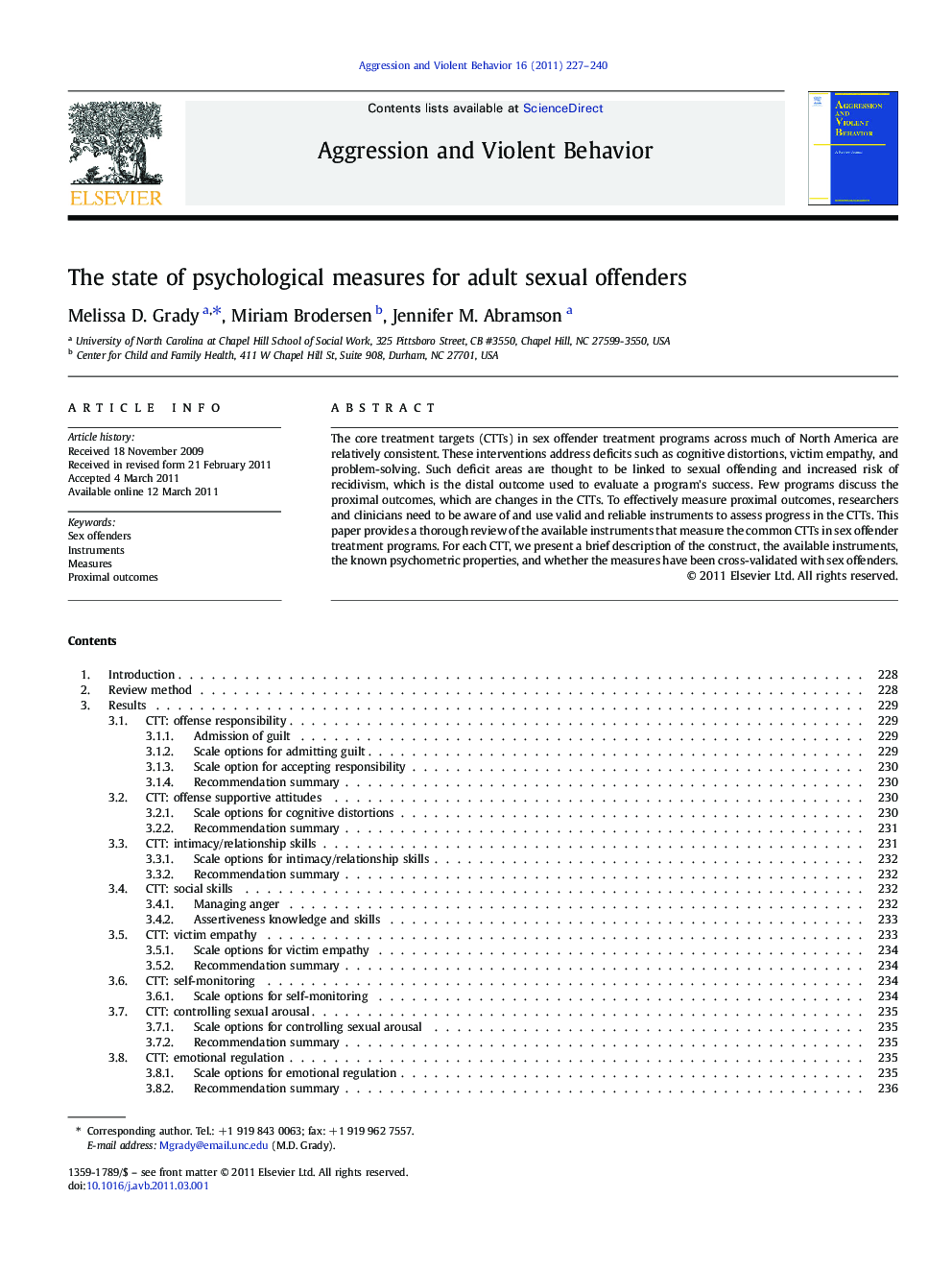| Article ID | Journal | Published Year | Pages | File Type |
|---|---|---|---|---|
| 94711 | Aggression and Violent Behavior | 2011 | 14 Pages |
The core treatment targets (CTTs) in sex offender treatment programs across much of North America are relatively consistent. These interventions address deficits such as cognitive distortions, victim empathy, and problem-solving. Such deficit areas are thought to be linked to sexual offending and increased risk of recidivism, which is the distal outcome used to evaluate a program's success. Few programs discuss the proximal outcomes, which are changes in the CTTs. To effectively measure proximal outcomes, researchers and clinicians need to be aware of and use valid and reliable instruments to assess progress in the CTTs. This paper provides a thorough review of the available instruments that measure the common CTTs in sex offender treatment programs. For each CTT, we present a brief description of the construct, the available instruments, the known psychometric properties, and whether the measures have been cross-validated with sex offenders.
Research highlights► Review of valid and reliable instruments for sex offenders. ► Review of instruments focused on criminogenetic needs or dynamic risk factors. ► Criminogenetic needs based on Safer Society Press (2009) North American study. ► Findings indicate paucity of valid and reliable instruments for sex offenders.
